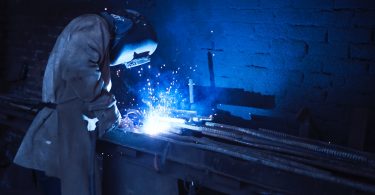To mark National Science Week, held March 11-15, Kettle Mag’s Emma Riordan spoke to The University of Sheffield’s Professor Elena Rodriguez-Falcon, the Faculty of Engineering’s Direct
To mark National Science Week, held March 11-15, Kettle Mag’s Emma Riordan spoke to The University of Sheffield’s Professor Elena Rodriguez-Falcon, the Faculty of Engineering’s Director of the Women in Engineering initiative, who is involved in STEM (Science, Technology, Engineering and Maths) subjects, and asked why there aren’t more women in Engineering.
Women are very much underrepresented in the STEM disciplines, a problem which has given birth to multiple organisations and bodies aiming to understand why this is. Whilst statisticians and government officials are quick to point out the discrepancy in gender balance in the sciences, none are able to offer an indication why the numbers are the way they are.
A matter of understanding
Professor Rodriguez-Falcon is not sure either. However, she tells me, she has an idea. She thinks the problem is in the semantics. “My hunch is that the term engineering, the discipline, in this country is often confused with vocational jobs,” Rodriguez-Falcon says. “Like mechanics, like the person who comes to fix my TV, they call themselves engineers. There are even ‘environmental engineers’ who collect your rubbish. People in this country think that if you become an engineer you’re going to be fixing cars, machines, collecting rubbish and things like that.”
She says that in her native language, Spanish, there are different words for a professional engineer and those who engage in work often given the title ‘engineer’ in England. The ‘heating engineer’ who fixes your boiler would not be associated with engineering in Spanish.
Women studying engineering
 Speaking of her own experiences doing her undergraduate degree in Mechanical Engineering in Mexico, she paints a different picture to the one we see in engineering lecture halls in the UK today. She says that her experiences in Mexico allow her to compare with the UK. “When I did my first degree in Mexico over 20 years ago, my class had around 25 per cent of women doing mechanical engineering, now there is around 35 per cent. Here, right now, at Sheffield – and it’s similar across the UK – the proportion of women doing engineering is between 8 and 10 per cent.”
Speaking of her own experiences doing her undergraduate degree in Mechanical Engineering in Mexico, she paints a different picture to the one we see in engineering lecture halls in the UK today. She says that her experiences in Mexico allow her to compare with the UK. “When I did my first degree in Mexico over 20 years ago, my class had around 25 per cent of women doing mechanical engineering, now there is around 35 per cent. Here, right now, at Sheffield – and it’s similar across the UK – the proportion of women doing engineering is between 8 and 10 per cent.”
It provides food for thought that the number of women studying engineering on another continent 20 years ago is still miles ahead of the current UK figures. And Professor Rodriguez-Falcon points out that there are even more discrepancies between the different engineering disciplines. Whilst there are only a small number of women taking civil and chemical engineering (more popular disciplines amongst female students) there are even fewer studying electrical engineering (around only 4 per cent) and computer science (4 per cent). These low numbers translate also to the working world. Only 7 per cent of practicing engineers are women.
Blockades on the path to engineering
Semantics are not the only problem when it comes to understanding what it takes to become an engineer. Professor Rodriguez-Falcon believes that “the way the progression paths for engineers works limits choice”. She points out that “if you do the right GCSEs, you can do the right A-levels. But, if you don’t do the right A-levels, then you can’t ever become an engineer”.
She tells me about the education system in Mexico which sounds much like the International Baccalaureate (IB) which is taken by a small proportion of UK students. The system allows you to take a broader range of subjects up until the age of 18, ensuring you have greater choice of university courses.
“I wanted to be a doctor when I was little, actually, until the moment I decided to be an engineer, I wanted to be a cardiologist. And that was because I wanted to help people.”
Think it’s only doctors who help people? Think again
“My own particular interest is developing solutions for people with disabilities. I design solutions and devices that help people to have a better quality of life.”
She believes that women, who tend to veer more towards caring professions like medicine, nursing and psychology don’t understand that by doing engineering you can make a difference.
“It’s really about solving problems. And the problems come from people, from society, from the world. There are problems that are very industrial, so there will be engineers who work on very industrial problems. But there are very human, very real problems in Third World countries where they don’t have clean water, or they don’t have any health related devices, or where poverty is killing people. So we can help in ways that people don’t realise.”
Engineering, it’s all around us
If you think of everything that surrounds you right now, there is not one thing which hasn’t been engineered in some way. Think of your morning routine. The alarm clock that abruptly wakes you was engineered by someone, the packaging that contains your breakfast food, it was produced and engineered. Everything you encounter until you return to your bed at night—which was designed by someone—has an engineer behind it. “That the beauty of it,” Professor Rodriguez-Falcon tells me, “anyone could be making a contribution if they had the skills.”
How do we get more young women on board?
I ask Professor Rodriguez what The University of Sheffield is doing to recruit more female students to STEM subjects. She tells me that they are working with the city council, with schools, and colleagues in other universities so that there is a bigger campaign raising an awareness of engineering.
She believes that the problem is that they are only recruiting from a small pool of talented young women who are taking the right A-levels. Exposure to the realities of engineering – and other sciences – needs to happen earlier. She wants to see a radical campaign reaching everyone in the UK to show what it is that engineers really do. She points out that there is a plethora of TV programmes focused on crime, on medicine, which target young people and expose them to the realities of the industries. What she’d like to see is something that shows the public what engineers really do, in a way that they can understand, and that entertains them.
“It’s not there, it’s not represented because it’s not an easy subject to represent. I think we can do better, and I would like to do better. We are not going to make a big difference if we don’t change perceptions.”
So what can we do?
“We can’t do it on our own, that’s the main thing. Even if we were very successful in every activity we run, it wouldn’t be enough. We need every single university, every single school, the government; everyone to explain what engineering is about. And to send the message that if you want to change the world, to make a difference one of the best ways is to do it though engineering.” It’s about educating everyone involved in young people’s educational choices.
I ask Professor Rodriguez-Falcon what she would say to a young girl considering engineering.
“If you are looking to make a difference, if you want to improve what we have, and how we live. If you want to make an impact on the grand challenges of the world, like energy, poverty, health. Engineering can do that. There is evidence that some of the best engineers have been women. If that’s the case, we need more women to be engineers because we need more outstanding engineers. We know that women do make fantastic engineers and we need more of them. We want outstanding engineers, those are women and they can make the world a better place.”
“The more we talk about it, the more people will know.”
What do you think? What more can be done to see more women in the engineering field? Have your say in the comments section beow, on Facebook or on Twitter.








